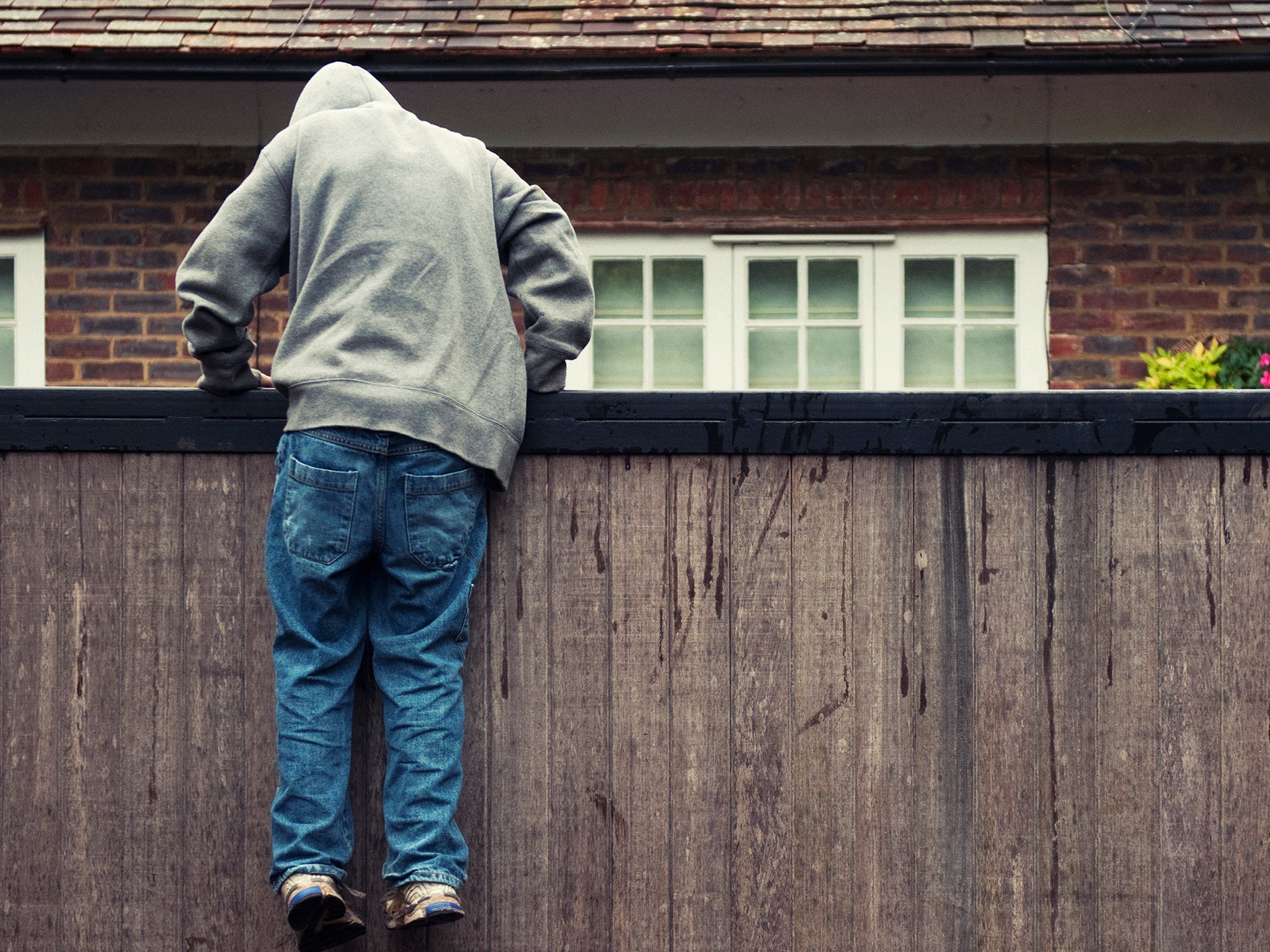Robbery and drug crimes committed by children rise for the first time in years
‘There is a growing need for government to overhaul exclusions and alternative education so as to break the link between educational failure and crime’

The number of children committing robbery, public order and drug-related offences has risen for the first time in years, official figures show.
Increases in the three categories were at odds with reductions seen across much of the youth justice system.
Under-18s were convicted or cautioned in relation to a total of 70,349 crimes in England and Wales in 2017-18.
This tally has fallen by three-quarters in a decade, and dipped by 4 per cent compared with the previous 12 months.
Year-on-year decreases were recorded across all offence groups except robbery, which increased by 15 per cent to 2,355 offences, having fallen in each of the previous three years, and public order offences, which had previously seen falls in each of the past 10 years, but increased by 9 per cent to 5,248.
Drugs offences rose by 2 per cent to nearly 6,000, after having previously seen long-term falls.
The figures are detailed in a report published by the Ministry of Justice, which also showed that “violence against the person” offences now account for more than a quarter of crimes committed by children.
There were 20,111 offences in this category, which was down slightly year on year.
But as a proportion of the total number of crimes, it has increased to 29 per cent, compared with 19 per cent a decade earlier.
The paper said: “Whilst the number of ‘violence against the person offences’ has fluctuated in recent years, they have been steadily increasing as a proportion of all offences over the last 10 years.”
The findings come amid mounting concern over serious violence, and knife crime in particular.
In the year ending March 2018, there were just under 4,500 offences of possessing, or making threats with, a knife or offensive weapon committed by children resulting in a caution or conviction.
The report said that while this was an increase of 64 per cent compared with five years ago, and there have been year-on-year increases since the year ending March 2014, the number of these offences remains lower than in the years ending March 2009 and 2010.
Rory Geoghegan, head of criminal justice at the Centre for Social Justice think tank, said: “We shouldn’t be surprised to see increases in categories like weapons and drugs, as police work harder to tackle serious youth violence and the growing number of robberies. We know that many of those young people will have been excluded from school, and with school exclusions on the rise there is a growing need for government to overhaul exclusions and alternative education so as to break the link between educational failure and crime.”
Overall, just under 26,700 children and young people received a caution or sentence in the 12 months to March 2018, a fall of 82 per cent compared with 10 years earlier, and a 6 per cent year-on-year decrease.
Police in England and Wales made around 65,000 arrests of children in 2017-18.
This number has fallen by more than three-quarters (78 per cent) in a decade, and was down by 8 per cent year-on-year.
A UK Government spokesman said: “The number of children entering the criminal justice system for the first time has fallen 86 per cent in the last decade, and we welcome the fact that this figure continues to go down. Anyone committing a serious crime should be punished appropriately, and we continue to work tirelessly to make youth custody more focused on rehabilitation to prevent future crimes and enable young people to turn their lives around.
“That’s why we are increasing frontline staff in public sector YOIs (young offender institutions) by 20 per cent, improving training for officers working with young people, and have recently announced a £5m investment in a new secure school at Medway.”
Press Association
